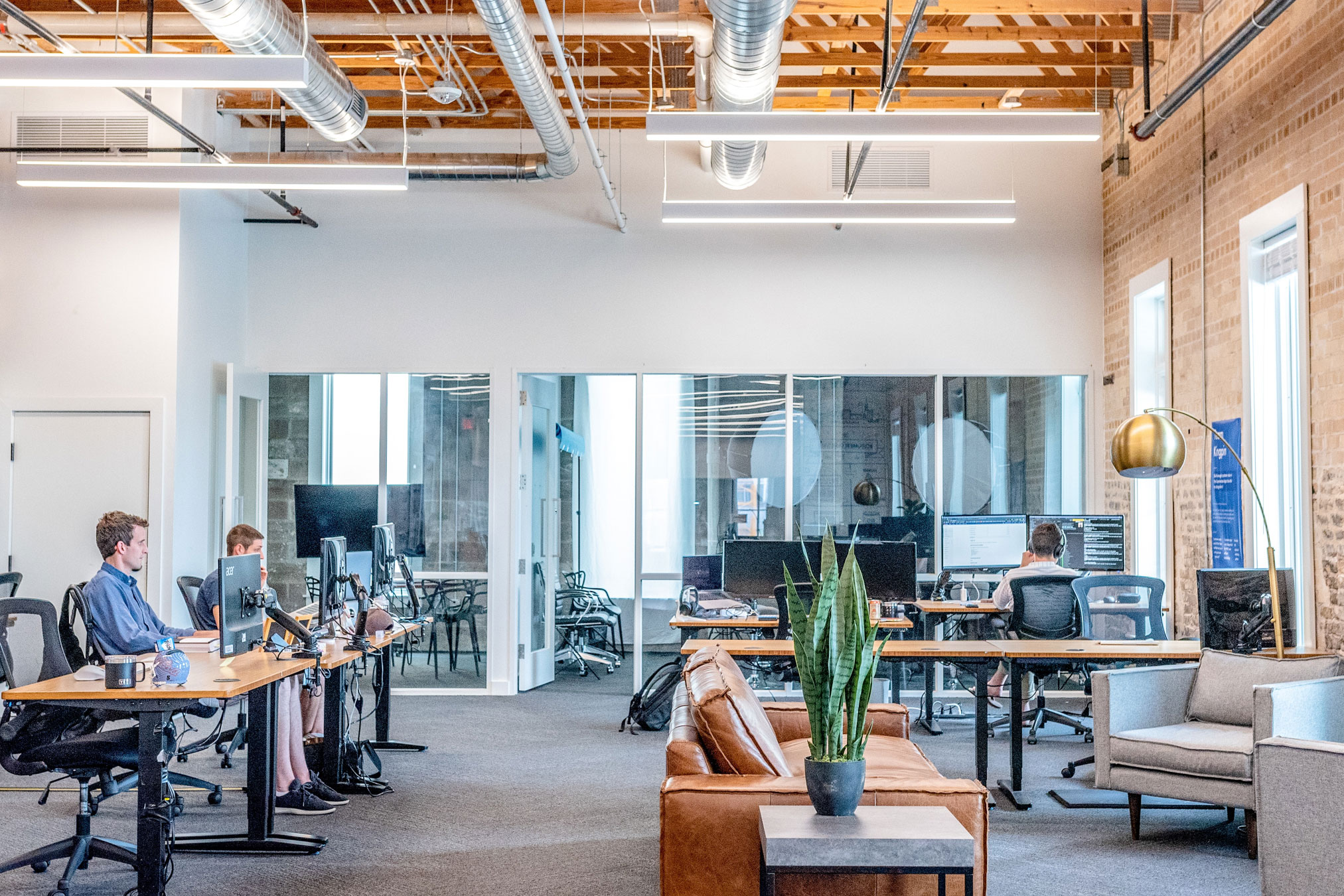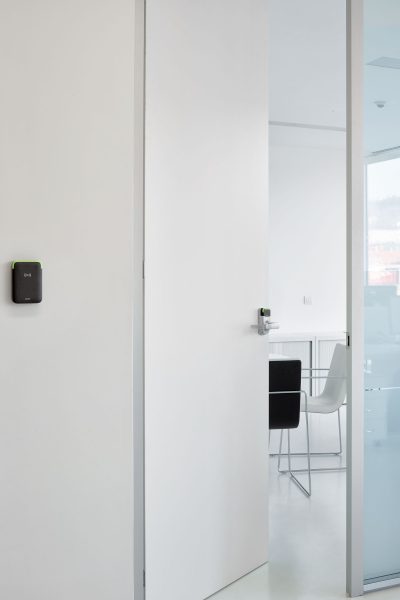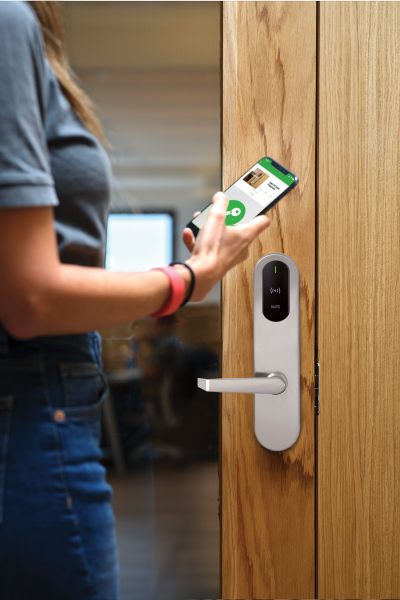Story at a glance:
- Coworking workplaces are growing rapidly, requiring smart access and security systems.
- Modern access systems from Salto meet efficacy, efficiency, and green expectations of coworking users and providers.
- Salto KS, or Keys as a Service, is a scalable, cloud-based systems that controls access and provides users a better experience.
To understand how advanced access control systems make for greener coworking spaces, you first have to understand the changing nature of workplaces.
Coworking workspaces reflect certain broader business trends. One is about startups: As entrepreneurs launch a new enterprise, they occasionally or even daily need a physical place to work and hold meetings where face-to-face contact matters. For remote workers in established companies, coworking provides a structured environment even if they are removed from their employers’ offices hundreds of miles away. Independent contractors—freelancers—are big users of coworking spaces, too.
The numbers tell the story. According to Statista, a global data and business intelligence platform, the number of coworking spaces in the US grew from 14 in 2007 to more than 7,000 by early 2024. And in Europe, coworking has a longer history with rentable spaces shared by unrelated workers.
Notably, coworkers lean in to being green. The demographics of coworking space users skew young, almost all being in the Millennial and Gen Z age cohorts. People in these age cohorts have, understandably, greater concerns about climate change. Coworking also has heavy representation from people working in the technology sector who like flexible work schedules that allow for less commuting and a reduced environmental impact.
Security and Coworking
- Photo courtesy of Salto Systems
- Photo courtesy of Salto Systems
Giving these types of workers a metal key—something they could lose or need to have frequently replaced due to security concerns—isn’t at all sustainable. If a coworking enterprise is out of step with contemporary technologies—in this case, digital access—that isn’t very impressive either.
A company like Salto, which provides smart building access control solutions, makes more sense in this sector for a variety of reasons (including first impressions). Specifically, one of the company’s smart access platforms that is ideally suited for coworking—known as Salto KS, or Keys as a Service—is a scalable, cloud-based system that controls access, tracks events, and provides users a better experience through mobile-based digital keys.
How is this green? Consider the coworking space with scores of users. If just one physical key gets into the hands of unknown parties, or a former user neglects to return one, all locks need to be changed and all users need a new key. It’s not only disruptive to operations, but there is an environmental cost to issuing new metal keys and trashing others. In many scenarios new lock sets and door reinforcement hardware can also be required, along with human labor to do the work. Costs range from approximately $150 to $300 per door.
European Roots
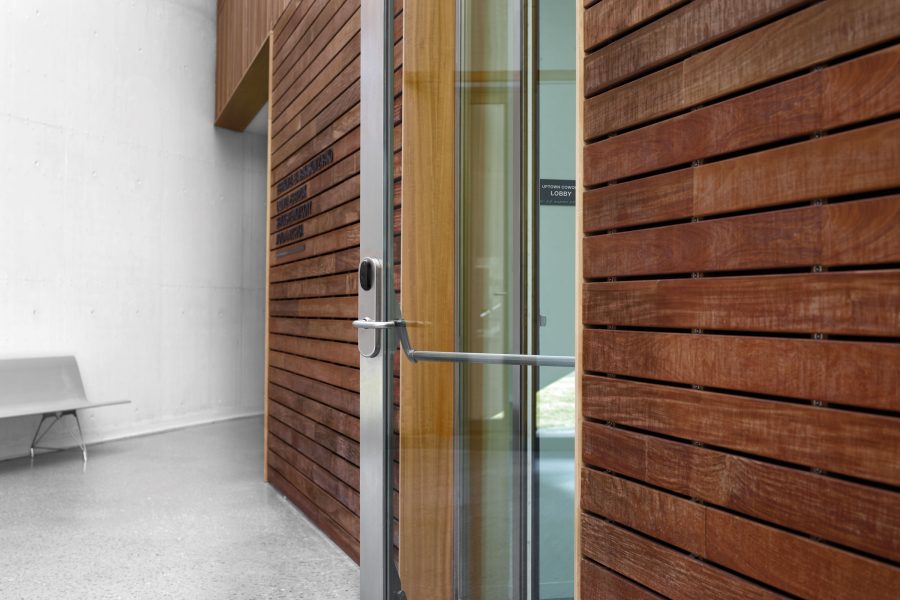
Photo courtesy of Salto Systems
Salto is based in Spain—noteworthy because coworking has existed in Europe longer than in the US. “Salto is a global company, and coworking really started to take off earlier in Europe,” says Nikki Seidman, industry sector leader with Salto. “After we started working with a leading global coworking company (IWG/Regus), we started engaging with more coworking brands, our reputation in the industry grew and things snowballed from there.”
What Seidman discovered as the company began to work with these growing coworking enterprises—from large multi-location companies to smaller independent firms—was most were still using traditional access control systems and bearing the expenses and inconvenience of them. “They lost time and money issuing new keys for workers who lost theirs, even though in other regards they were super tech savvy and environmentally conscious.”
Sustainability is Key
The sustainability benefits of Salto begin where they are made in the company’s manufacturing and administrative headquarters in Oiartzun, Spain. There, renewable energy (onsite photovoltaic solar and offsite sources) powers 100% of its operations while employees index high for use of public transportation and bicycle commuting. More specific to products, the company has conducted life cycle analyses (LCAs) to document and improve upon its product designs, raw material processing, transport modes, manufacturing and assembly processes, product use, and disposal.
We try to be thoughtful about how we use energy.
To say sustainability is intrinsic to the company’s core values is an understatement. It not only extends to how the company makes and ships its products. It’s in how products like the Salto KS solution continues to function once installed. When locks are not actively in use they go into standby mode, which extends battery life. When in use energy consumption is minimal as well.
“When the locks are active, we try to be thoughtful about how we use energy,” says Brittany Lightfoot, hardware product manager at the company. “We’re always looking to maximize the usability of the batteries and reduce the frequency that they need to be replaced.”
She says one of the most compelling reasons for a coworking company to choose Salto when thinking about sustainability and environmental impact is their energy efficiency. “We’re using low-energy, battery-operated locks that reduce the need for wired installation and the associated energy consumption that lowers the overall energy footprint.”
High-Efficiency Controlled Access
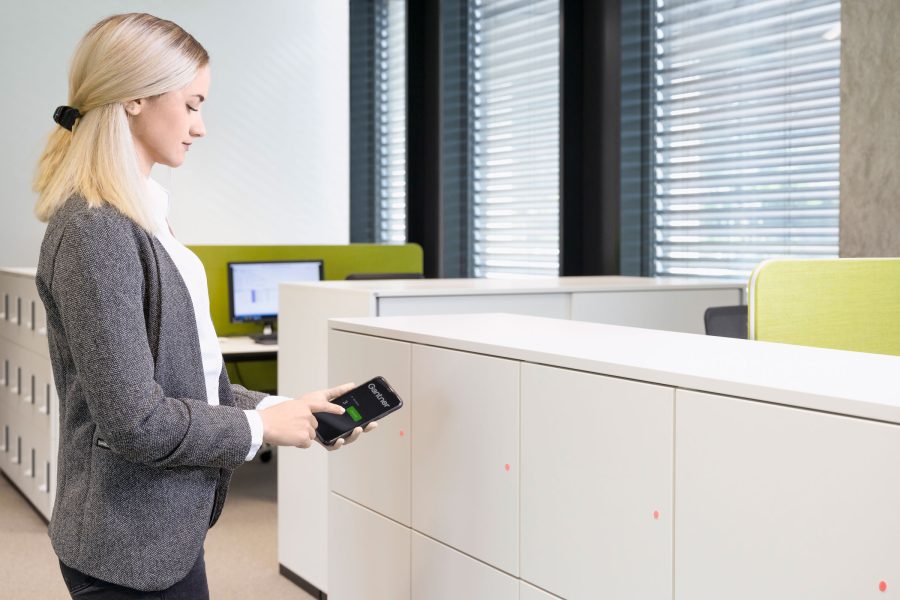
Photo courtesy of Salto Systems
Lightfoot says the company continuously works to maximize battery life and cut replacement frequency, as well as the utility of Salto devices to support the evolving needs of coworking environments.
“As we’ve grown, our teams have prioritized unifying our products and platforms to provide solutions that all work together,” Lightfoot says. “There are enough decisions to make and demands on our time in our lives as it is. Figuring out how to make your access control software, hardware, and locker systems play nicely together doesn’t need to be another challenge to overcome.” Smart lockers at coworking sites serve individuals who need to keep equipment and personal effects secure in the facility.
Recent product launches include an XS4 Original+ and BLUEnet Door Controller. These facilitate remote control and bring new features and updates to the platform. They also compensate for changing environmental signals such as from wireless printers and microwaves that might otherwise interrupt the locking systems.
In addition to environmental sustainability, Salto believes accessibility is an important part of its product offering. As the company upgrades products and develops new ones, it also works to make sure they are more usable, serving the breadth of coworking users, including those with disabilities.
One example of this is the recent redesign of the Salto keypad wall reader. The company engaged with ONCE—an organization that supports and advocates for people with visual disabilities to improve their personal autonomy and quality of life—to reengineer the product to offer unassisted access through the addition of tactile and audible features like Braille, recessed keys, and a raised central ring to orient users. “In looking for accessibility improvements we can make to our products, both new and existing, we aim to offer better designs for all users making access control truly accessible,” Lightfoot says.

